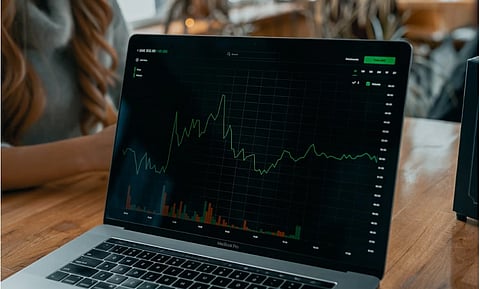
- HOME
- OPINION
- ON GROUND
- INTERVIEW
- INDIA
- NewsGram USA
- WORLD
- न्यूजग्राम
- POLITICS
- ENTERTAINMENT
- CULTURE
- LIFESTYLE
- ECONOMY
- SPORTS
- Jobs / Internships
- Misc.
- NewsGram Exclusive

By Emann Grace
The economy is always changing, but recent years have shown just how quickly trends can shift. Technology, global events, and consumer behavior are all playing a bigger role than ever. For businesses and individuals alike, understanding these trends is essential to staying ahead. Planning, adaptability, and insight are now just as important as traditional financial knowledge.
One major trend is the growing influence of technology on the economy. Automation, artificial intelligence, and digital platforms are transforming the way companies operate. Many industries are seeing faster production cycles, smarter decision-making, and reduced costs. This change is creating opportunities for tech-savvy workers and entrepreneurs who can harness these tools to gain a competitive edge. At the same time, it is also challenging those who are slower to adapt.
Another trend to watch is the shift in consumer habits. People are increasingly shopping online, seeking personalized experiences, and prioritizing sustainability. Companies that can meet these expectations will thrive. For example, the gaming industry demonstrates how consumer preferences influence markets. Many gamers now prefer affordable, pre-owned consoles, showing that value and accessibility often drive purchasing decisions. Platforms like PS4 used at Own4less make it easier for buyers to access quality products at lower prices, which reflects a broader economic trend of smart, cost-conscious spending.
Remote work is also reshaping the economy. Businesses are reconsidering office space, hiring practices, and team management. This flexibility has opened up new markets and allowed companies to tap into talent pools across regions and even countries. It also shifts consumer spending patterns, as people spend more on home offices, technology, and digital services. These changes will continue to influence economic growth in both urban and suburban areas.
Globalization and supply chain dynamics remain critical factors. Recent disruptions have highlighted vulnerabilities in production and logistics. Companies are exploring ways to diversify suppliers, shorten supply chains, and invest in local production. These efforts affect pricing, availability of goods, and international trade policies. Businesses that understand these dynamics early can position themselves to take advantage of new opportunities while minimizing risk.
Sustainability is no longer just a trend but a fundamental driver of economic decisions. Consumers, investors, and governments are increasingly prioritizing environmental responsibility. Businesses that adopt sustainable practices not only contribute positively to the planet but also gain a competitive advantage. This includes energy efficiency, reducing waste, and considering the entire lifecycle of products. Companies that ignore this trend risk losing market share as preferences shift toward responsible brands.
Finally, financial technology, or fintech, continues to reshape how we handle money. Digital wallets, online banking, and blockchain technologies are making financial transactions faster, safer, and more accessible. These tools empower consumers and small businesses, reduce costs, and open new avenues for investment. Keeping up with these technologies is no longer optional for anyone who wants to remain competitive in today’s economy.
The economy’s future will be shaped by these trends and more. Technology, changing consumer behavior, remote work, supply chain management, sustainability, and fintech all intersect to create a dynamic environment. For individuals and businesses, staying informed and adaptable is essential. Those who can recognize shifts early, embrace innovation, and align with evolving preferences are the ones most likely to succeed.
Even in areas like entertainment and gaming, these economic shifts are visible. Pre-owned consoles, online marketplaces, and budget-conscious purchasing all reflect broader patterns in consumer choice and spending habits. Access to affordable technology through platforms like PS4 used at Own4less demonstrates how economic trends influence even personal leisure choices.
Understanding these trends helps you make smarter decisions, whether for investments, business strategies, or everyday purchases. The future of the economy is not set in stone, but it rewards those who watch closely, adapt quickly, and invest in the right tools and knowledge today.
[NG-FA]
Suggested Readings:
